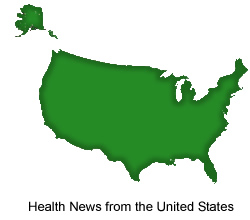
Date Published: 19 February 2010
Many Americans would delay taking recommended antibiotics after anthrax attack - according to Harvard Poll

Most Americans would worry about serious illness or death after anthrax
attack, but many would delay taking recommended antibiotics
In a national poll aimed at helping with planning efforts for a public health
response to a possible bioterrorism attack, researchers at the Harvard School
of Public Health (HSPH) have found that, in response to a fictional scenario
describing a significant anthrax attack in their city or town, most Americans
(89%) will likely follow public health recommendations to obtain prophylactic
antibiotics. However, a significant minority of those likely to pick up antibiotics
(39%) will hold on to them rather than take them right away, which public health
experts believe may put them at greater risk of serious illness. Further, 21%
of Americans are ?not at all familiar”with the term ?inhalation
anthrax', and an additional 25% hold the mistaken belief that inhalation
anthrax is contagious ? two factors that could compromise their following
emergency instructions meant to protect them against this biological agent.
Anthrax has been identified by government planners as a likely agent should
there be a future bioterrorist attack, and ?inhalation anthrax”
is a potentially lethal illness that can be contracted when spores containing
anthrax are inhaled. Public health experts believe antibiotics that are started
quickly ? possibly even before a person is certain they have been exposed
to anthrax spores or before symptoms of the illness appear ? may have
the greatest likelihood of successful treatment.
The poll was conducted December 9-28, 2009 among a national sample, as well
as people living in areas that actually experienced anthrax attacks in 2001:
Washington, DC , Trenton/Mercer County, NJ and New York City. The poll was conducted
as part of an ongoing series by the Harvard Opinion Research Program at HSPH.
The polls are aimed at helping federal, state and local governments better understand
the general public's needs and beliefs in the event of a traumatic public
health emergency, including biological threats and natural disasters, and to
formulate plans for the best delivery of countermeasures.
The Harvard researchers have no knowledge of an impending biological attack using anthrax in the United States.
Source:  Harvard
School of Public Health, USA.
Harvard
School of Public Health, USA.
![]()


